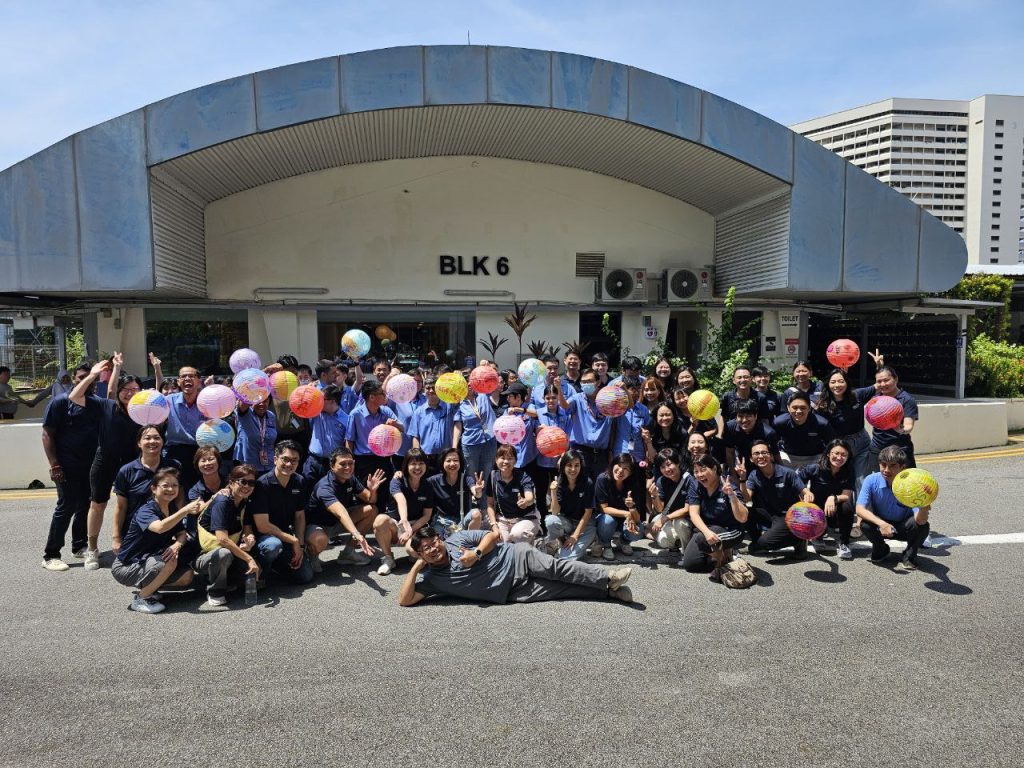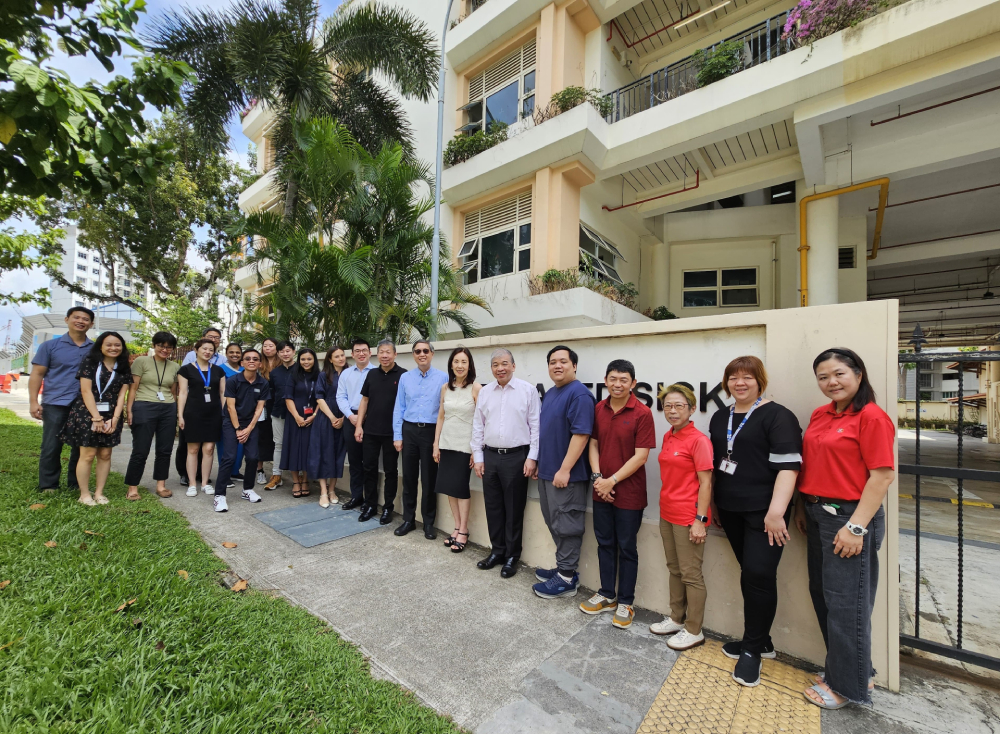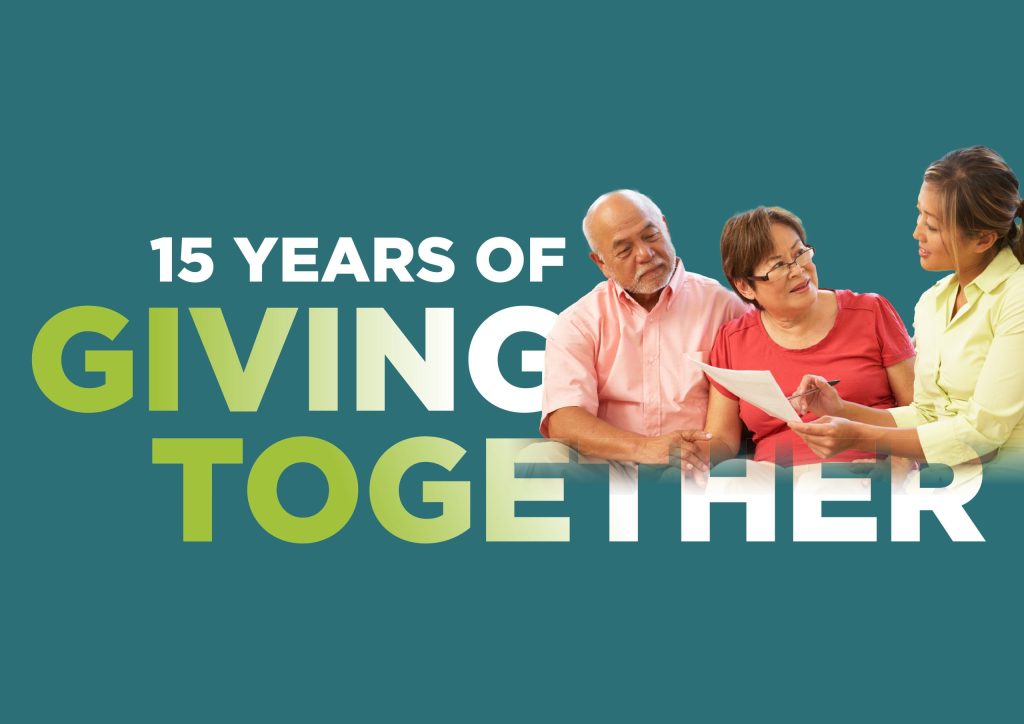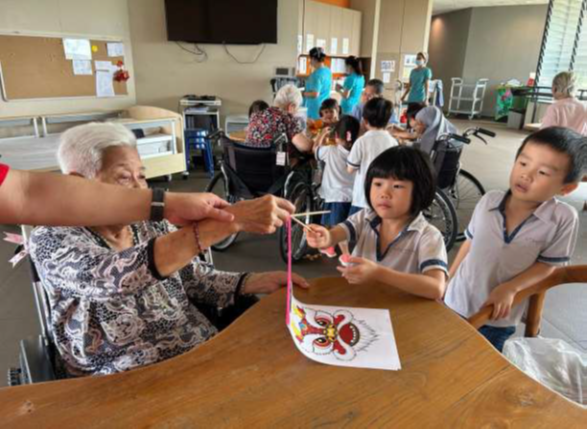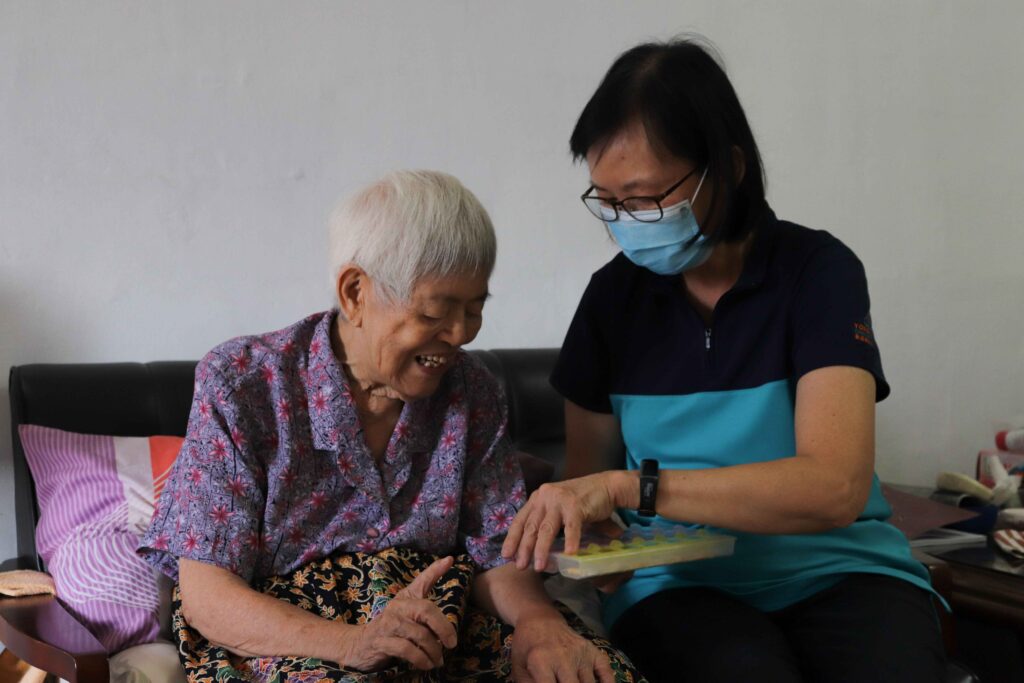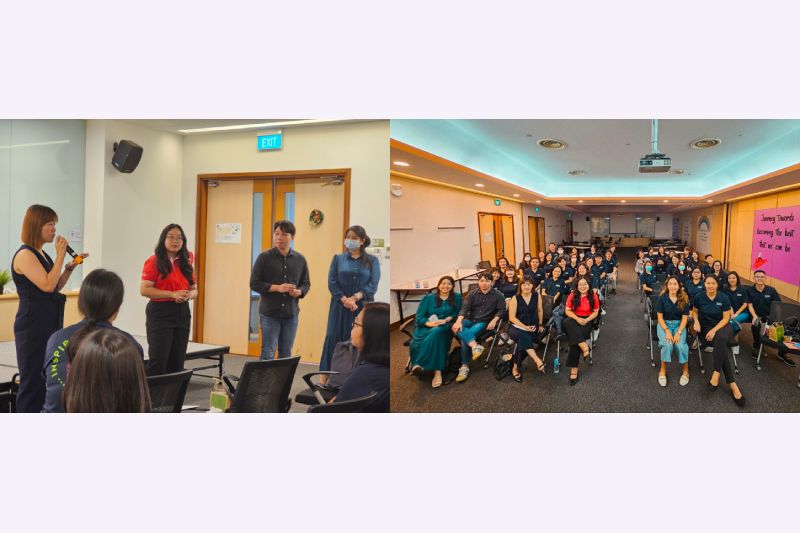Get Funding Support To Further Your Charity’s Cause
At the Community Foundation of Singapore (CFS), we recognise the critical role of funding in enabling charities to achieve their social missions. We provide grants to reputable and transparent charities in Singapore through funds set up by our donors. The process of applying for charitable grants may appear daunting, but we are here to guide you through the process. Please read this page carefully before starting your application. To be eligible for a grant, charities must:
-
Have Institution of Public Character (IPC) status.
IPCs demonstrate strong governance and can facilitate tax-deductible donations. -
Be secular and non-political.
Charities must not promote nor denounce religious or political causes. -
Be based in Singapore.
Charities applying for grants must be registered in Singapore and meet the community needs here. -
Fall within CFS’s mandate.
Charities should have a mission and vision that is aligned with CFS’s identified causes. -
Demonstrate a positive outcome.
Charities must have a programme or purpose that can demonstrate benefits for the Singaporean community and/or the environment.

Does Your Programme Qualify For A Grant?
We view charity grants as investments in Singapore’s community and environment. Each grant application goes through a thorough review process to ensure they are made fairly and wisely. In addition to assessing charities, CFS conducts a comprehensive assessment of each programme before presenting it to our donors. Programmes with a two year track record or more are considered mature programmes. Those in operation for less than two years, as well as CAPEX and research projects, are classified as innovative emergent programmes and subject to a more rigorous evaluation process.
To receive a charity grant, your programme should meet these criteria:
Focus On An Underserved Issue
- Define target segment: Identify key demographics and psychographics (e.g. age, location and social profile) as well as outreach and selection methods.
- Data-driven insights: Present statistics to illustrate the existing needs and gaps in the community.
- Justification for intervention: Provide evidence that current interventions are inadequate to address identified needs.
Offer Solutions
- Programme Model Validation: Verify the programme model through research.
- Demonstrate Tangible Impact: Present a clear plan illustrating how programme actions will achieve intended results.
- Mission Alignment: Ensure the programme aligns with the charity's vision and mission.
- Risk Identification: Identify potential challenges and related mitigations associated with the programme.
Show Readiness In Programme Execution
- Implementation Tools and Structures: Provide a comprehensive plan detailing the programme’s required resources and activities.
- Track Record: Disclose the programme's historical performance, including both successes and failures.
- Organisational Capability: Share evidence of the charity's capacity to effectively carry out the programme.
- Manpower: Specify the staff expertise and costs required for programme implementation.
Demonstrate Tangible Impact
- Outcome/Output Indicators: Set SMART (Specific, Measurable, Achievable, Relevant, Time-bound) goals to clearly define success.
- Monitoring Plan: Offer a detailed strategy for tracking progress at various stages - before, during, and after programme implementation.
Maintain Financial Oversight
- Cost Justification: Provide a clear and detailed explanation of expenses, broken down into specific line items.
Grant Types Offered
CFS offers four categories of charity grants, tailored to meet various philanthropy objectives.
Each type of grant application will undergo its own unique evaluation process.
Funding Activities For Beneficiaries And The Environment
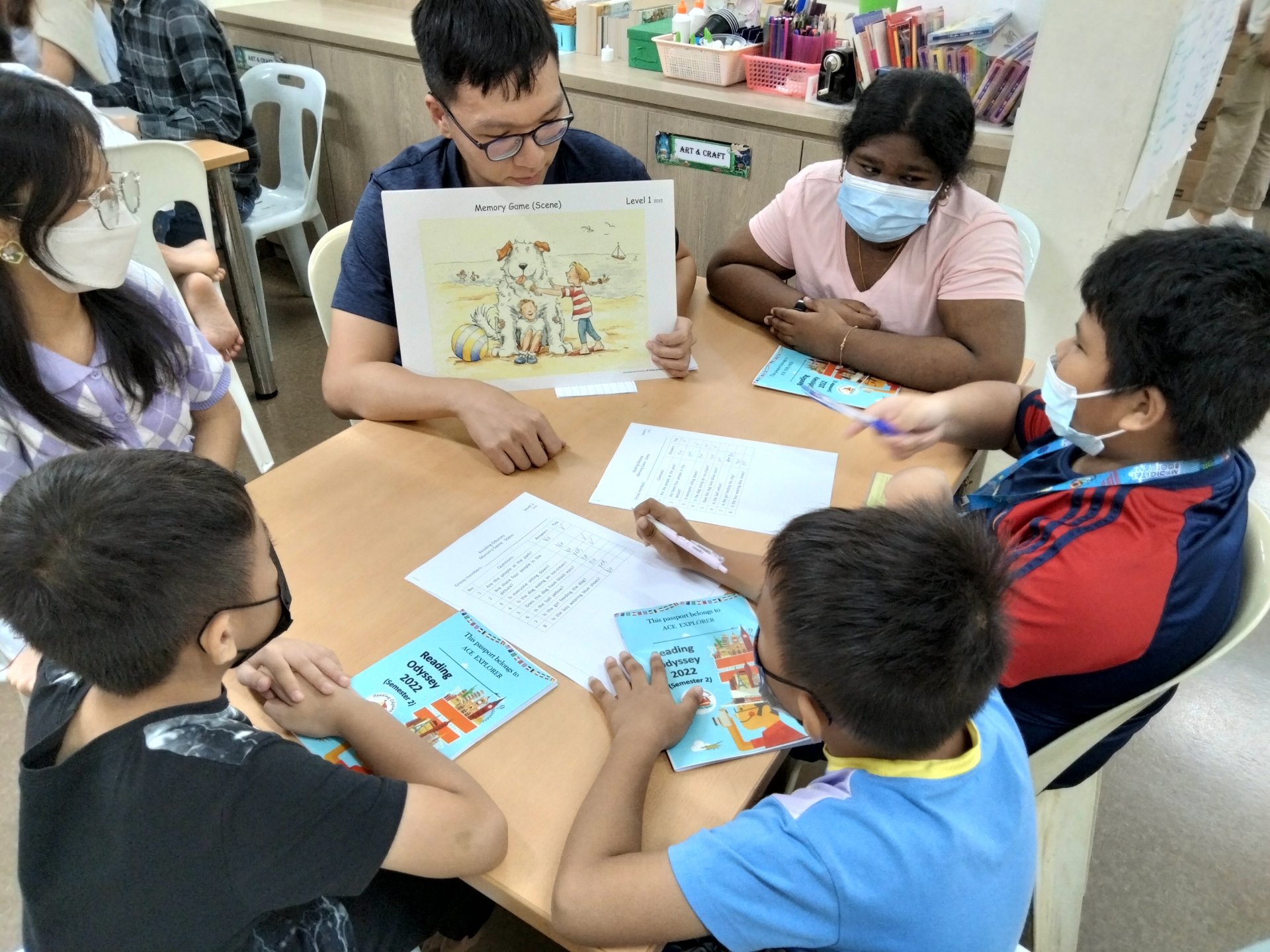
What Does This Cover?
Programme grants provide funding for activities that address specific community and/or environmental needs, including the manpower costs required to run them. The activities should have targeted outputs and outcomes to demonstrate efficacy. Funding is not applicable for debt financing or displacement of past grants.
Examples
- Academic and Character Development
- Direct Assistance
- Mental Well-being
- Elderly Services
Upgrading Your Infrastructure

What Does This Cover?
CAPEX or capital expenditure grants are for the acquisition of hardware such as buildings, plants, equipment and fixtures for new or existing facilities or the implementation of software systems that enhance the services of a charity.
Examples
- Building Funds
- Renovations
- Software Subscription
Developing Your Charity’s Expertise

What Does This Cover?
Capability development grants are used to develop the charity’s talent pool and capabilities or upgrade its strategic expertise. The objective is to improve the charity’s service standards and abilities, enabling them to provide more effective support to their beneficiaries.
Examples
- Training
- Education
- Consultancy Engagement
Building Knowledge

What Does This Cover?
Research grants support studies and experiments, including data gathering from test-bedding new solutions. Research results should aim to benefit existing and future programmes, increase knowledge about social issues and shape policies and thinking.
Examples
- Field Expeditions
- Surveys
- Laboratory Experiments for Product Development
Your Grant Journey With Us
CFS is committed to making grants as judiciously and efficiently as possible. Prior to submitting a grant application, a charity must successfully complete our Know Your Grantee Check and sign a Grant Partnership Agreement with us. A charity grant application will typically go through these five stages:
- Submit a completed CFS grant application form to request funding for a specific purpose.
- CFS will evaluate the information provided in the grant application form according to our assessment guidelines. We may seek further details from charities during this time.
- Upon successful approval of grant applications, CFS will prepare a donor-facing grant proposal.
- Upon the recommendation of any donor(s), CFS will disburse the grant to the charity via bank transfer or cheque.
- For all charity grants amounting to SGD$25,000 or more, it is a requirement to submit a report after the grant period concludes. This report serves to update CFS on how the grant was utilised, and enables CFS to communicate the impact of the grant with donors.
Please note that the steps outlined above may not follow a sequential order. All applications are subject to CFS’s evaluation and only approved applications may be shared with donors. Grants, if given, are subject to terms and conditions. CFS reserves the right to change the grant’s criteria and terms and conditions without prior notice. Charities must be assessed by CFS and sign a Grant Partnership Agreement before the disbursement of grants. Grant recipients should inform CFS of unutilised grants after the period of intended funding. Donor’s approval is required if the funds are to be carried forward, reallocated or refunded.
Please note that submission of a grant application does not guarantee approval of your application, the development of a donor proposal or funding from our donors. CFS strives to provide donors with options that meet their charitable goals and intentions. All donors retain the final rights to determine the recommendation of grants.
You May Be Interested In
How We Support Charities
Together, we drive impact for the community.
List Of Grantees
Find out who has benefited from our support.
Causes We Support
The 13 charitable areas we focus on.
What We Do
Discover how we grow philanthropy in Singapore.
Who We Are
Our identity as a community foundation.
Our Team
Learn about our diverse and trusted leadership.
How We Assist Donors
Transform your generosity into impact.
Collectives
Drive large-scale impact through collaboration.
Centre for Applied Philanthropy
Learn how we are leading innovation in philanthropy.
Frequently Asked Questions
We answer your burning questions.
Community Impact Funds
Give with others for greater community impact.
Latest News & Media
